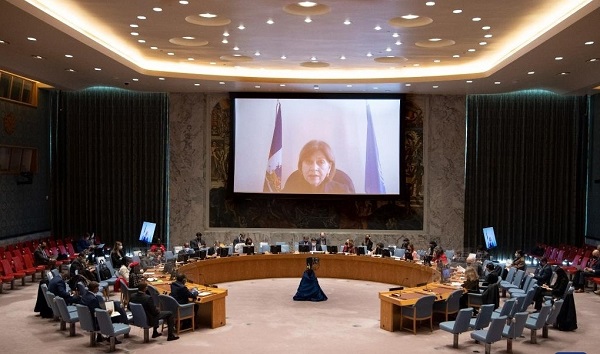
UNited Nations, (Asian independent) The top UN envoy for Haiti has called for efforts to tackle gang violence in the Caribbean nation.
Gang violence continues to plunge major urban centres of Haiti into lawlessness and grief. Criminal armed groups have a strong hold on the economic and social lives of millions of children, women and men. Their indiscriminate use of abduction, murder, as well as sexual and gender-based violence as a means to terrorise local populations in the fight to extend their territorial control is particularly abhorrent, said Helen La Lime, the UN Secretary-General’s special representative and head of the UN Integrated Office in Haiti.
To stem this ever-growing wave of violent crime, the Haitian National Police has, within its limited capacity, sought to improve the effectiveness of its anti-gang operations, adopt a more balanced approach between prevention and repression, and rely on an increased police presence in sensitive areas, an approach which yielded modest temporary results in some zones in the Port-au-Prince metropolitan area, she told the Security Council in a briefing.
Yet an over-stretched, understaffed, and under-resourced police force cannot on its own curtail the alarming rise in gang-generated insecurity, she said.
To provide the Haitian National Police with much-needed relief, the Haitian government, its international partners, and the UN have jointly resolved to strengthen international support and coordination of assistance to the institution, with a view to ensuring its effective and structured long-term development, she said.
The gang phenomenon cannot be addressed through policing alone. A law enforcement approach, which incorporates a greater control of the illegal flow of weapons, needs to be complemented by socio-economic projects and reintegration activities aimed at generating employment and revenue in the neighbourhoods most affected by the scourge of gang violence, said La Lime.
“Haitian authorities have adopted a national community violence reduction strategy premised on such a holistic approach, and we commend their efforts to ensure that it is swiftly and effectively implemented,” she said.
On the political front, La Lime said it is imperative that all Haitian leaders resolve to engage constructively with one another to steer the country toward a process that will allow elections to occur.
The international community must also continue to engage with the Haitian government and other stakeholders not only to support efforts to create the necessary security and political conditions for the holding of national elections, but also to ensure that urgent structural reforms are undertaken to tackle gang violence, address impunity and corruption, strengthen the justice system and transform the economy in a sustainable manner, she said.







